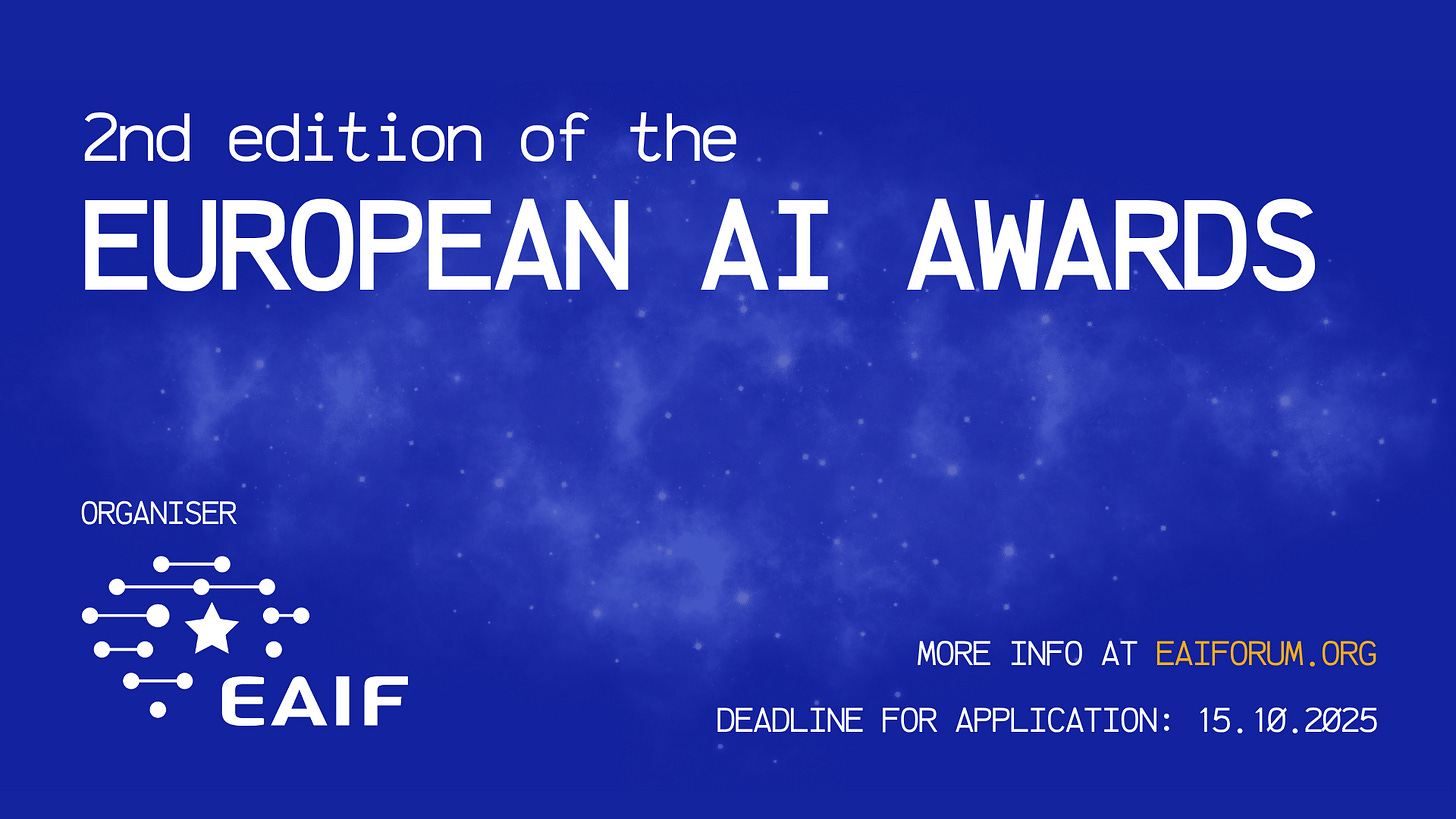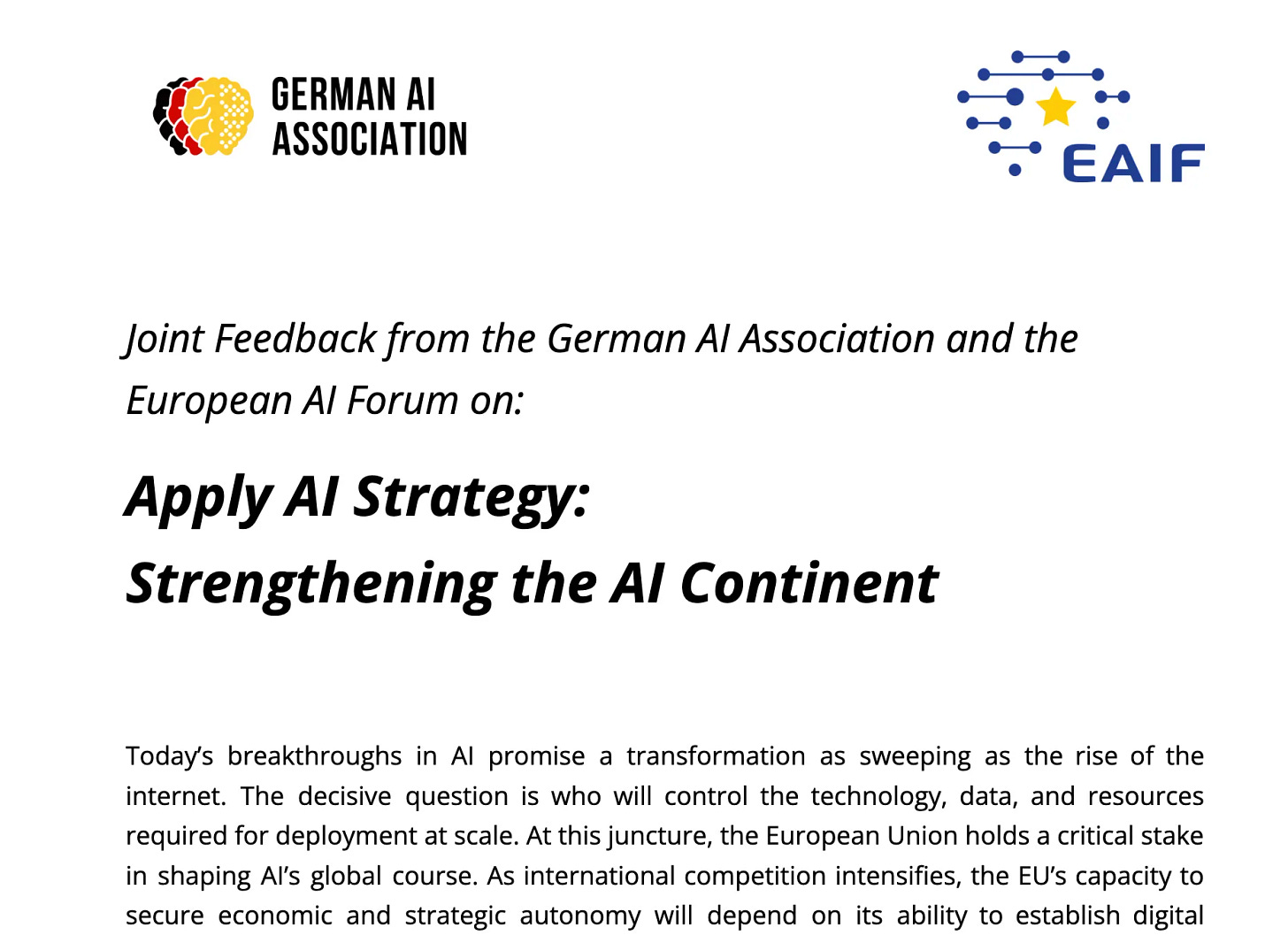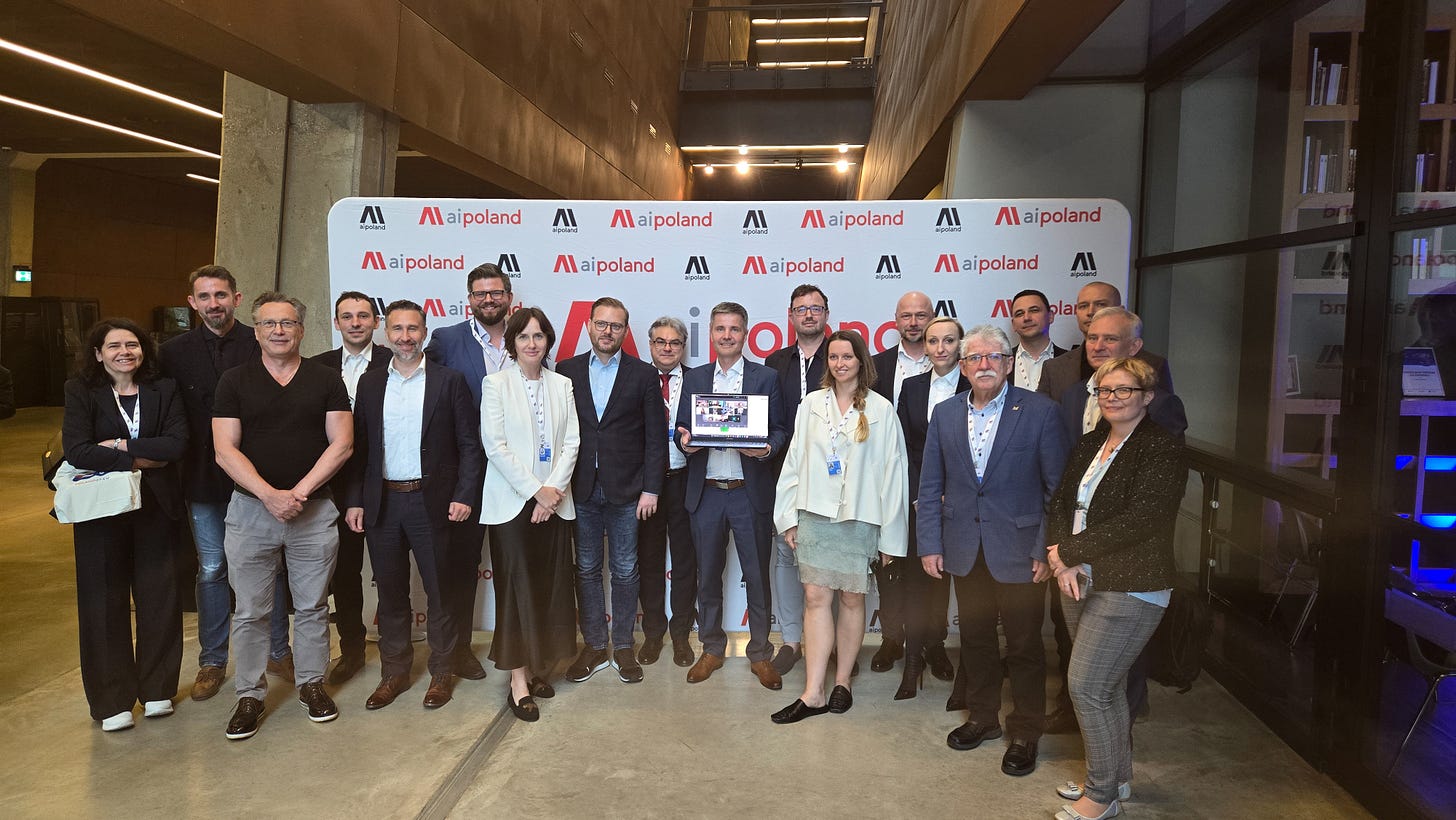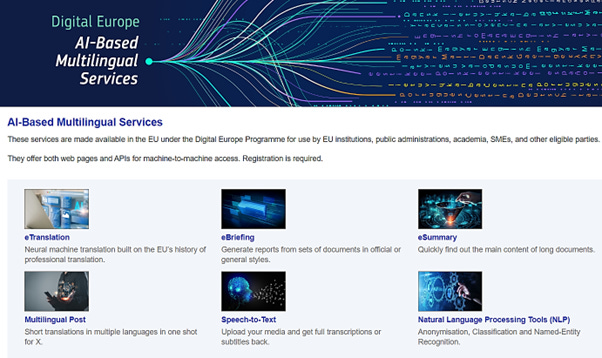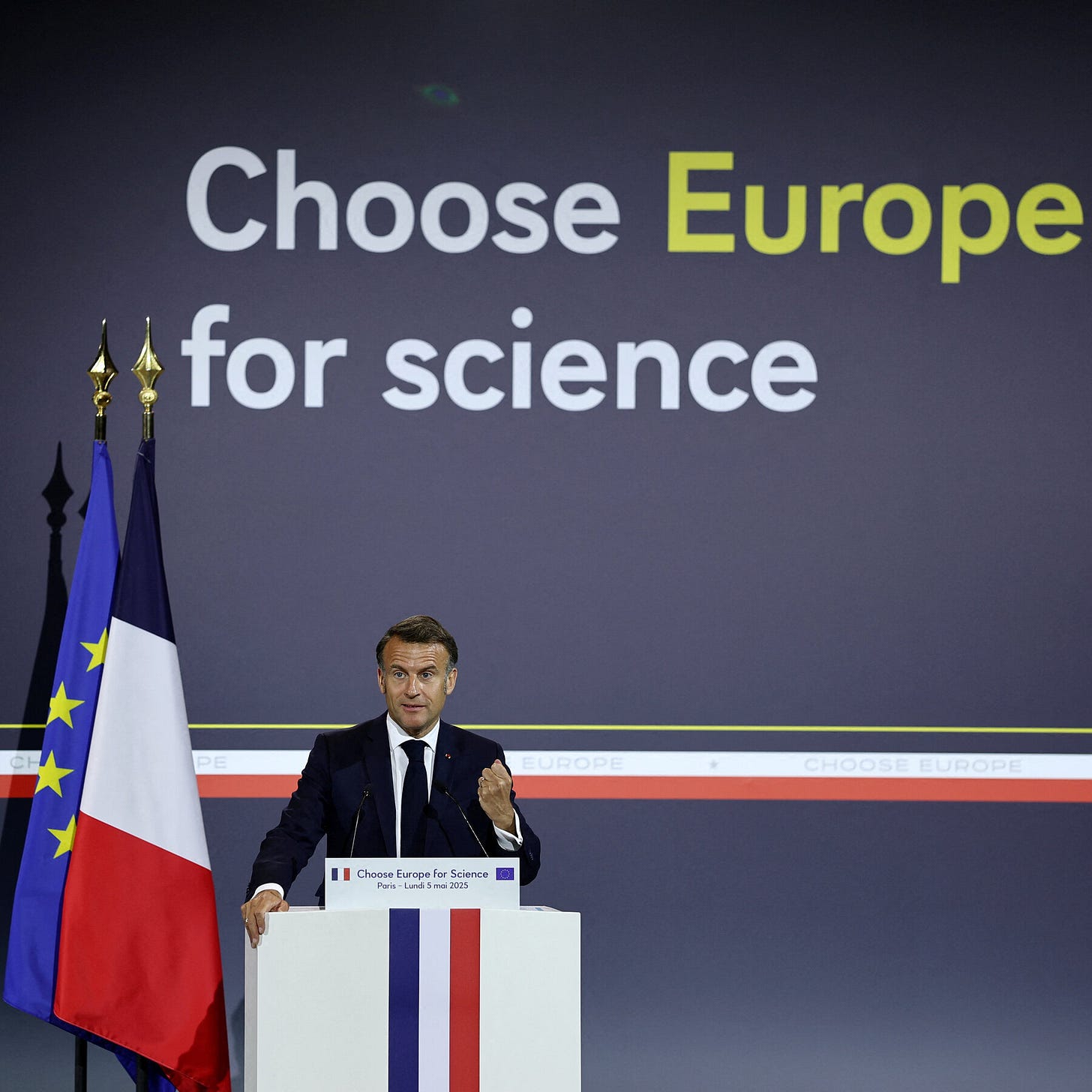EAIF newsletter
European AI Forum (EAIF) newsletter provide you on a monthly basis with insights, news and updates from the European AI ecosystem. AI regulation and EU policy, national AI activities, upcoming events.
In this 2025 May-June newsletter you can find the following topics:
11th European AI Forum in Gdansk
Call for submissions for 2nd European AI Awards
Joint Feedback from the German AI Association and the
European AI Forum on: Apply AI Strategy
🇵🇱 AI Poland: A Bold New Chapter for Polish AI
European Commission backs initiatives to bolster multilingual AI
Privacy group files GDPR complaint against OpenAI over ChatGPT inaccuracies
European leaders launch €500m package to attract US researchers
Elon Musk’s Grok AI faces inquiry over legality of use of EU users’ data
Irish regulator fines TikTok €530m for GDPR breaches over data transfers to China
OECD and EU release draft framework to boost AI literacy in schools
Lithuania’s ecosystem making waves in AI landscape
11th European AI Forum in Gdansk
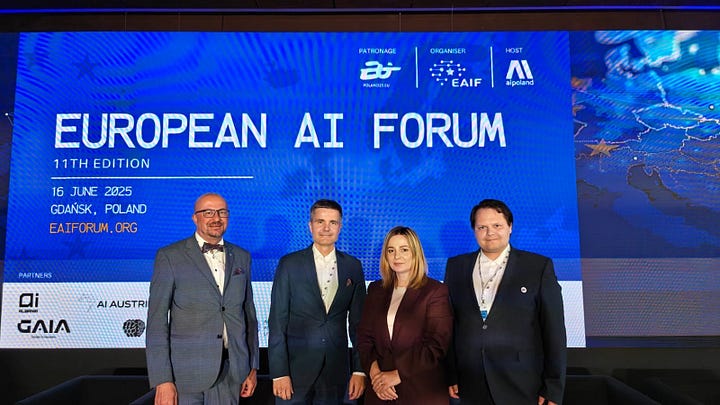
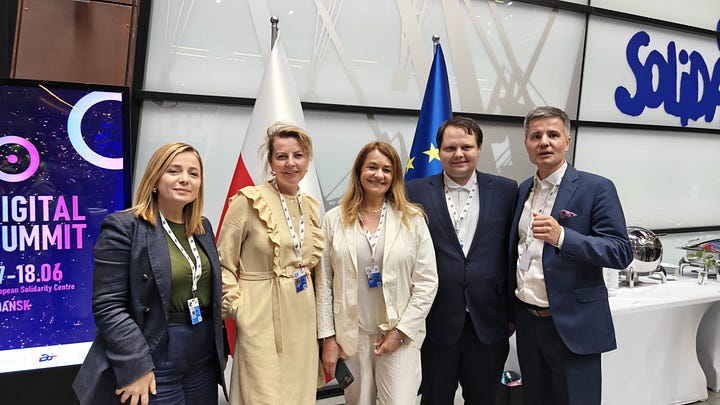
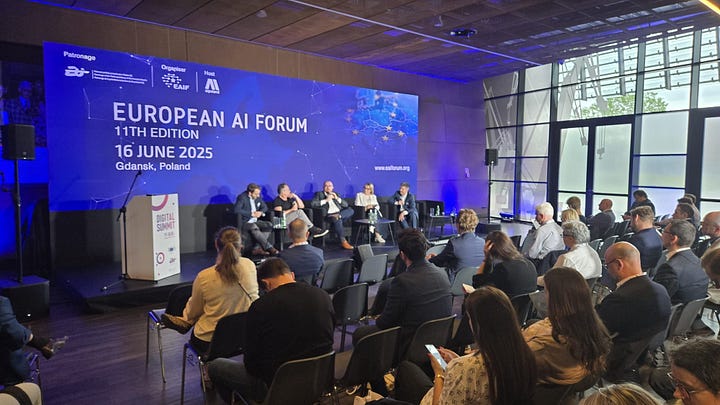
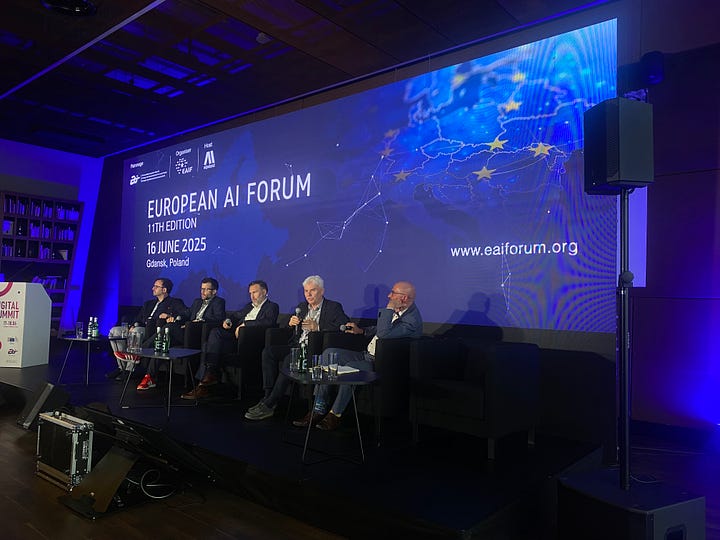
The 11th edition of the European AI Forum, took place on 16th June 2025 in Gdańsk, Poland, broght together Europe's leading minds in AI policy, innovation, and entrepreneurship. Co-organised by nine national AI associations, this flagship event explored how Europe is preparing for the implementation of the AI Act and scaling its AI infrastructure. Attendees heared from key policymakers including ministers and AI envoys from Lithuania and Czechia, as well as industry leaders from organisations such as EuroHPC, HPE, and OpenFuture Foundation. Topics span from AI infrastructure and cloud computing to open-source AI and digital sovereignty.
This year’s Forum also highlights the growing European AI community, with new members from AI Albania and Georgian AI Association joining the EAIF network. The agenda included region-focused segments like the Polish Corner, showcasing national innovation, and fireside chats on regulatory sandboxes and the AI Act. The Forum reaffirms its role as a central meeting point for shaping the future of AI in Europe.
Call for submissions for 2nd European AI Awards
🚀 The European AI Forum is thrilled to announce the call for applications for the 2025 European AI Awards! Following the success of the inaugural awards, this year’s edition will once again spotlight the brightest innovators, investors, policymakers, and ecosystem builders shaping Europe’s AI future. Applications are open from June 1st to September 31st, 2025, with winners to be revealed at the 12th EAIF Conference in December. If your work is transforming the AI landscape across business, policy, investment, or research, now is the time to apply and be recognised!
Joint Feedback from the German AI Association and the European AI Forum on: Apply AI Strategy
The German AI Association and the European AI Forum have jointly released a strategic position paper titled “Apply AI Strategy: Strengthening the AI Continent”, highlighting the urgent need for the European Union to move beyond regulation and take bold, coordinated steps to reclaim technological sovereignty and global competitiveness in AI. They warn that Europe risks falling further behind the U.S. and China in private investment, infrastructure, and deployment if it doesn’t address deep-rooted challenges such as underfunded innovation, talent drain, fragmented infrastructure, and limited domestic market adoption. Despite its leadership in regulation and research, the EU struggles to translate academic strengths into scalable AI enterprises, with SMEs and public administrations facing significant barriers to implementation due to skills shortages, regulatory complexity, and lack of AI-ready infrastructure.
To counter this, the joint paper proposes seven targeted policy recommendations: launching AI implementation and compute vouchers for SMEs; simplifying and delaying regulatory deadlines to allow realistic compliance; reducing the costs of AI regulation through shared legal tech infrastructure; using strategic public procurement to promote European AI; strengthening research-to-market pathways to support spin-offs; creating an “Erasmus for AI” mobility and skills programme; and adopting a “European AI-First” approach anchored in measurable deployment targets. These measures aim to catalyze AI innovation and adoption across sectors, positioning Europe as a self-reliant, globally competitive AI continent.
🇵🇱 AI Poland: A Bold New Chapter for Polish AI
During the recent Digital Summit and European AI Forum in Gdańsk, a major step forward was taken for Poland’s technology future: the official launch of AI Poland. Formed by 40 organizations under KIGEiT—the country’s largest ICT chamber—AI Poland aims to unify startups, research institutes, corporations, and public bodies to build a resilient, ethical, and globally competitive national AI ecosystem rooted in European values.
The initiative addresses both local and continental challenges: from accelerating the development of homegrown large language models (LLMs) to ensuring Poland contributes meaningfully to Europe’s push for technological sovereignty. With founding members including names like Nomagic, VoiceLab.ai, QED Software, and Digital Poland Foundation, the group’s goals are ambitious—developing ethical standards, driving AI education, shaping policy, and promoting Polish innovation on the international stage.
Led by President Piotr Mieczkowski and a diverse board of industry leaders, AI Poland also plans to embed itself within the European AI Forum, connecting with over 2,200 AI startups across 12 countries. In a region where digital transformation is urgent and opportunity-rich, AI Poland is setting the foundation for Poland to emerge not just as a contributor—but as a leader—in shaping Europe’s AI future.
European Commission backs initiatives to bolster multilingual AI
The European Commission has endorsed the Alliance for Language Technologies European Digital Infrastructure Consortium and the Language Data Space to enhance multilingual artificial intelligence systems. The projects, involving 26 member states and regions, seek to preserve cultural diversity and improve data availability for AI, supporting smaller EU businesses and reinforcing the continent's technological independence.
Privacy group files GDPR complaint against OpenAI over ChatGPT inaccuracies
Austrian digital privacy group Noyb has lodged a complaint with Norway's data protection authority, accusing OpenAI of breaching the EU's General Data Protection Regulation by failing to correct false personal data generated by ChatGPT. The complaint follows a case in which ChatGPT fabricated a story about a Norwegian user committing murder of a child. OpenAI has since updated ChatGPT to incorporate internet search capabilities to reduce inaccuracies. The complaint is the second by Noyb, which previously requested that OpenAI correct or erase false personal data about a public figure.
European leaders launch €500m package to attract US researchers
European Commission president Ursula von der Leyen and France's Emmanuel Macron have announced a €500m package aimed at funding the relocation of US researchers to Europe. The Choose Europe for Science initiative has been launched in response to the impact of US president Donald Trump's policies affecting science in the US, where universities and research facilities are facing political and financial pressure, including threats of federal funding cuts, and foreign students fear deportation for their political views. At Paris's Sorbonne university, Macron and von der Leyen have underlined Europe's commitment to research and academic freedom. The Commission is calling on EU member states to invest 3% of GDP in research and development by 2030 to make the continent a global hub for scientific excellence.
Elon Musk’s Grok AI faces inquiry over legality of use of EU users’ data
The Irish Data Protection Commission has initiated an investigation into Elon Musk's Grok AI to determine whether it has lawfully processed EU users' data. The inquiry follows earlier commitments by Musk's social media platform X to cease data processing for Grok and delete historic data. Consumer organisations have alleged multiple violations of the EU's General Data Protection Regulation, which could expose the company to substantial fines. Since December 2020, Grok has been available to all X users, and has been able to create biographies of people who have an account on the social media platform.
Irish regulator fines TikTok €530m for GDPR breaches over data transfers to China
Ireland's Data Protection Commission has fined TikTok €530m for breaching the EU's General Data Protection Regulation by transferring European user data to China. The regulator says the technology platform must bring its data processing into compliance within six months or risk the suspension of data transfers, citing issues including TikTok's misstatements about data storage locations and failure to ensure data protection equivalent to EU standards. Deputy commissioner Graham Doyle says TikTok's personal data transfers to China infringed the GDPR through failure to verify and guarantee data protection, and the absence of required assessments regarding potential access by the Chinese authorities under domestic law.
OECD and EU release draft framework to boost AI literacy in schools
The Organisation for Economic Co-operation and Development and the European Commission have released a draft framework intended to promote artificial intelligence literacy among primary and secondary school pupils. Developed with input from international experts and organisations, the 43-page document highlights technical knowledge, human skills and ethical considerations as central themes. The framework sets out four domains of AI literacy, covering engaging with, creating with, managing and designing AI, each supported by suggested lesson plans.
Lithuania’s ecosystem making waves in AI landscape
In just weeks, Lithuania has made bold strides that underscore its growing influence in the global AI landscape. From Cast AI's $108M Series C to Sintra's viral rise and $17M seed round, Lithuanian-born companies are exporting innovation at scale—redefining everything from cloud automation to AI-powered small business tools. Meanwhile, Iron Wolf Capital’s €100M fund is setting new records for deeptech investment in the Baltics, signaling strong confidence in the region’s founders, diaspora, and frontier technologies.
But perhaps the most transformative shift is happening closer to home—in Lithuania’s classrooms. A new initiative led by Tesonet, Hostinger, and nexos.ai will equip over 1,000 schools with advanced, no-code AI tools—free of charge. It’s a generational investment aimed at empowering 9th–12th graders and teachers to build real-world applications using natural language alone. As AI reshapes the economy, this move ensures Lithuania’s youth aren’t just passive users—but active creators—of the next wave of innovation.
Have news to share: newsletter@eaiforum.org
Contact: info@eaiforum.org
Website: eaiforum.org
LinkedIn: linkedin.com/company/eaiforum


